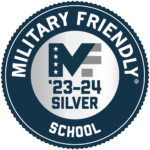Business Diplomas and Associates Degrees–How Do They Compare?
 Are you interested in becoming a business administration specialist? Not sure if you should get a diploma or degree? Regardless of the choice you make, both a diploma and degree in Business Administration will prepare you for the workforce and help you secure a life-long career. So, what do you learn during a Business Administration Specialist program?
Are you interested in becoming a business administration specialist? Not sure if you should get a diploma or degree? Regardless of the choice you make, both a diploma and degree in Business Administration will prepare you for the workforce and help you secure a life-long career. So, what do you learn during a Business Administration Specialist program?
What Do You Learn During a Business Administration Specialist Program?
Both the diploma and degree Business Administration programs focus on the following curriculum:
Payroll Accounting – courses that focus on the system of tracking business expenses related to payroll. The payroll of an organization can include taxes, benefits, time off, compensation, and bonuses. It also concerns the withholding of payroll taxes like Social Security and Medicare.
Small Business Management – courses on how to manage employees, suppliers, vendors, and the daily process of a small business. These courses also focus on financial management, business operations management, employee training and retention, and light bookkeeping.
Law and Ethics – a course that examines the role of law in the context of business management. This course focuses on the legal framework of a business, employment law, business operations, and business ethics and morals.
Social Media and Internet Marketing – a course that examines the use of social media and Internet marketing to promote a business within the target market. Social media and Internet marketing introduce the business to the consumer, educate them on the product or service offering, and create a funnel for the consumer to convert.
Principles of Management – a course that teaches business administration specialists how to actively manage a business and its employees. This course focuses on planning, organizational structure, workplace culture, staffing, decision-making and leadership.
Customer Service and Relationship Management – a course on the processes of customer interaction. This course explores the quality customer experience throughout each step in the process. The customer service and relationship management course focuses on customer retention, post-sale follow-up, and lead management.
Business Diploma vs Business Associates Degree
There are a few similarities and differences between the Business Diploma and the Business Associates Degree. They include:
In-Depth Curriculum
While both the diploma and degree program focus on payroll accounting, small business management, law and ethics, social media and Internet marketing, principles of management, customer service and relationship management, the degree program curriculum gets more in-depth. The degree program offers three concentrations in accounting and business management, office administration and business administration.
Opportunities for Advancement
While both graduates of the diploma and degree program will start out in entry-level positions as a business administration specialist, those with a degree program may find they have more opportunities for advancement. Obtaining a degree gives you a competitive advantage when moving up the ladder within an organization.
Program Timeline
The main difference between the business diploma and degree is the length of each program. The diploma can be completed in as little as 12 months while the degree program builds upon the diploma program and can be completed in as little as 24 months, attending full-time.
Diploma Level vs Associates Degree Level
Ohio Business College offers programs leading to a Diploma or to an Occupational Associate Degree of Applied Business. All programs are comprised of these two levels of completion:
Diploma Level
The diploma level requires completion of 40 quarter credit hours and is designed to be completed in as little as twelve months. This level develops skills that may enhance employment possibilities at the entry level. Classes focus on:
Accounting & Computerized Accounting – classes on how to interpret and formulate financial data to make management decisions. You will also learn how to analyze the balance sheet and general ledger accounts to prepare reports. Additional financial statements that you will learn about include the income statement, statement of owner’s equity, and statement of cash flow.
Small Business Management – classes that teach the basics of running a small business and the coordination of day-to-day operations. This includes small business operations, budgeting, business planning, legal issues, financial management, inventory management, human resources, and marketing.
Business Communication – classes that help you develop your communications skills to effectively communicate with coworkers, supervisors, and customers. You will learn about business communication through writing emails, letters, and correspondence; making presentations; and talking directly with employees. Understanding the organization of speech, body language, and oral presentation preparation is essential for business success.
Intro to Computer Science – a class that teaches the fundamentals of how a computer works including the software and hardware of a computer system. You will become familiar with computers, programs, programming languages and operating systems.
Word Processing – a class that prepares you to work with Microsoft Word to create documents, formatting text, insert WordArt, print documents, insert headers and footers, insert and format tables, adjust page settings, use mail merge to create a form or letter, generate mailing labels, and import charts from Microsoft Excel.
Spreadsheets – a class that prepares you to work with Microsoft Excel to enter and edit data, write formulas, create graphs and charts, automate tasks, and manage Pivot Tables. This knowledge will help you analyze data and make forecasting predictions.
Graphics Presentations – a class that will prepare you to work with Microsoft PowerPoint to create presentations, build a slide deck, add graphics and animations, include images, import charts and graphs from Excel and apply transitions between slides.
Occupational Associate Degree Level
The associate degree level program requires completion of 92 quarter credit hours and is designed to be completed in as little as twenty-four months, attending full-time. This degree level is for those that desire the benefits of an associate degree that advances skills that builds upon the diploma level curriculum. Requirements for the occupational associate degree include general education courses that enhance your understanding of business management, communication, and leadership skills. There are three concentrations that include Accounting and Business Management, Office Administration and Business Administration:
Accounting and Business Management
The Accounting and Business Management concentration differentiates itself through the following curriculum:
- Accounting
- Payroll Accounting
- Computerized Accounting
- Tax Accounting
- Small Business Management
- Human Resources Management
- Training and Development
- Principles of Marketing
- Customer Service and Relationship Management
- Event Planning and Promotion
- Social Media & Internet Marketing
Office Administration
The Office Administration concentration focuses on the following curriculum:
- Accounting
- Business Communications
- Microsoft Office Programs
- Intro to Computer Science
- Small Business Management
- Desktop Publishing
- Integrated Office
- Digital Applications
- Administrative Office Procedures
- Customer Service and Relationship Management
- Human Resources Management
- Training and Development
- Principles of Marketing
- Event Planning and Promotion
- Social Media & Internet Marketing
- Marketing Research
Business Administration
The Business Administration concentration specializes in specific aspects of the other concentrations and focuses on the following courses:
- Payroll Accounting
- Computerized Accounting
- Small Business Management
- Human Resources Management
- Law and Ethics
- Principles of Management
- Training and Development
- Principles of Marketing
- Customer Service and Relationship Management
- Social Media & Internet Marketing
- Intro to Computer Science
- Interpersonal Communication
Final Thoughts
Now that you know more about the Business diploma and associates degree program offered, it is time to learn more about Ohio Business College. Graduating from the Business Administration Specialist program is the first step toward a rewarding career in an industry you are passionate about. Let Ohio Business College walk with you every step of the way to graduation and beyond.
Want to Learn More?
With our Business Administration Specialist program, you can find yourself prepared to work in many different areas, including banking, human resource management, retail, and administration. You might choose to apply your skills at a large corporation or small business, or you may decide to utilize them to start your own business or embark on an entrepreneurship path. The Business Administration Specialist training program at Ohio Business College gives you true flexibility to chart your own course and design your own future.
If you are interested in a business profession, let Ohio Business College answer any questions you may have. Contact us today to learn more about our Business diploma and degree programs.

